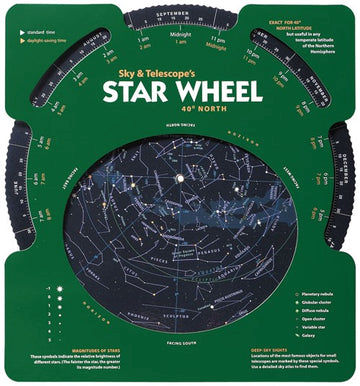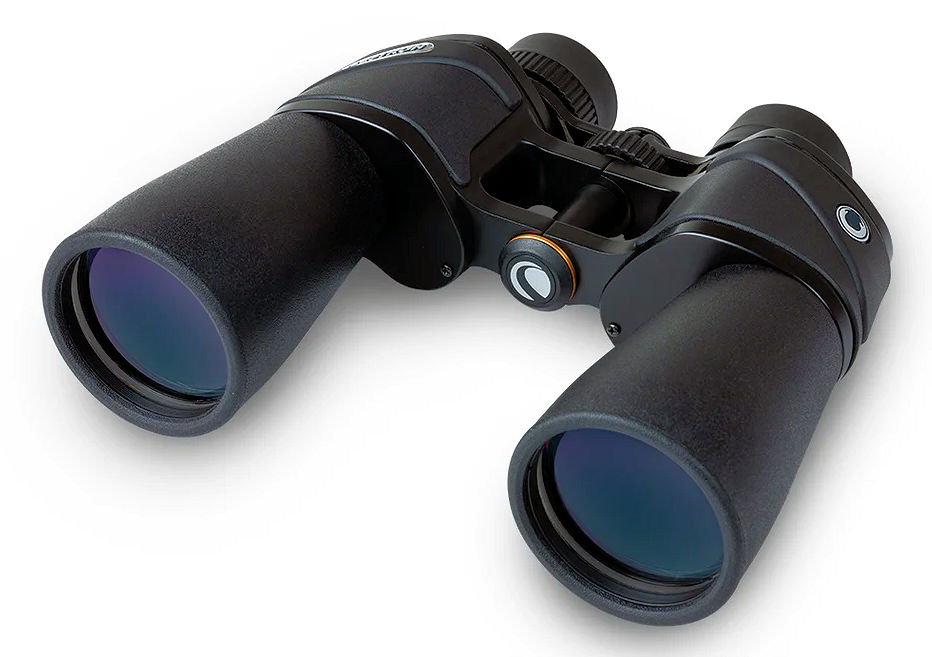 |
|
|
 |
|
|
|
How to Buy (and Not Buy) a Telescope
Astronomy is a hobby that can hold your attention for a lifetime, so it's worth starting out right. That doesn't mean you must spend a fortune. But whatever your price range, you want to get the most for your money.
The vast majority of inexpensive telescopes are purchased during the holiday season and given as gifts, mainly to children. Inexperienced buyers make the same unfortunate mistakes year after year. It is far too easy to spend your hard earned dollars on poor quality instruments, and the awful performance of these telescopes often discourages the recipients from pursuing their interest in astronomy. This guide, and the links that follow, will help you spend your telescope dollars wisely.
Rule 1: Learn the sky before you buy.
At the very least, you need to be able to identify the bright stars and major constellations with your naked eyes. A simple device called a planisphere (or star wheel) is a great tool to begin learning your way around. Planispheres cost between $5 and $20.
Along with a planisphere, you'll want a good book or two to help you understand what you're seeing. Click here for some recommendations.
An excellent next step before telescope ownership is a pair of binoculars. Many of us already have binoculars tucked away in a closet, and these are a fine way to increase your enjoyment of the night sky. With binoculars, a whole new level of detail becomes visible, compared to your unaided eyes. There are even entire books devoted to binocular astronomy!
Compared to telescopes, binoculars have the important advantage of presenting you with a normally oriented view of the sky. In contrast, astronomical telescopes typically display an image that is either upside down, mirror reversed, or both. Binoculars are extremely convenient, too; just grab them and go! Check out Binoculars: Halfway to a Telescope.
The aperture of a binocular's lenses determines how bright objects appear when you view them. This is not particularly important when viewing ordinary daytime objects such as birds and scenery. However, astronomical objects are often quite faint, so the aperture can often make the difference between seeing an object or not seeing it at all.
When shopping for binoculars, you will usually find the magnification and aperature combined into a single specification. A binocular specified as "7x35" magnifies objects 7 times, and its lenses are 35 mm (miliimeters) in diameter. A "10x50" binocular magnifies objects 10 times and has lenses 50 mm in diameter.
As the magnification and aperture increase, the size and weight of a binocular increases, too. So while most adults can comfortably use a 10x50, a binocular of that size may be too heavy for a child. Observers of all ages can benefit from mounting their binocular on a tripod, which helps to steady the binocular and ease the arm fatigue of holding a heavy instrument for a long period of time.
I know its hard to resist the immediate gratification of owning a telescope – it's especially difficult for kids – but you'll be much happier in the long run if you learn the sky before you buy a telescope. Once you become familiar with the stars and constellations using a planisphere or binoculars, and you're yearning for more, that's the time to step up to a telescope.
Rule 2: Know what to look for in a telescope.
Makers of poor quality telescopes take advantage of this common misunderstanding by claiming their telescopes provide absurdly high powers, such as "525x" or "675x." It sounds good, but this is a sure sign of a poor quality telescope; AVOID IT!
Actually, the main purpose of a telescope is not to magnify, but to gather light. The more light you can gather, the more you will see. The light gathering ability of a telescope is determined by the diameter of the scope's main lens or mirror.
Once you have gathered the light, then you can adjust the magnification of a telescope by using different eyepieces, much like changing lenses on a camera. Any telescope can be made to provide a wide range of magnifications, simply by changing eyepieces.
As a practical matter, very few telescopes – even extremely expensive ones – are capable of providing good, clear images at absurdly high power. For general observing, low to moderate power is much more useful than high power. Most observing is done at magnifications of 50x to 150x. Absurd magnifications such as "525x" or "675x" are rarely used except in very expensive telescopes in pristine viewing conditions.
Rule 3: Purchase from a knowledgeable vendor.
The best place to buy a telescope for star gazing is from a dealer who specializes in astronomy. Not only will you get a better value, but you'll establish a relationship with a vendor who can provide advice, accessories, and service (should it ever be needed). Dealers are generally quite willing to explain things and recommend a scope that is right for you.
Most major cities – and a few smaller ones – have at least one good telescope store. It's worth seeking them out.
There are also some excellent mail order vendors. Some of their catalogs amount to a mini course in astronomy. Buying from a mail order dealer does not give you the same personal service you get from a store, but their prices are generally a little lower.
This is not to say that you'll never find a good telescope in a discount store or on a TV shopping channel or online auction. Good telescopes are occasionally available from all of them. But you have to know exactly what you're looking for, and even then, the prices are seldom a bargain.
Links |

 A good-quality binocular, the Ultima 10x50mm. Available from
A good-quality binocular, the Ultima 10x50mm. Available from